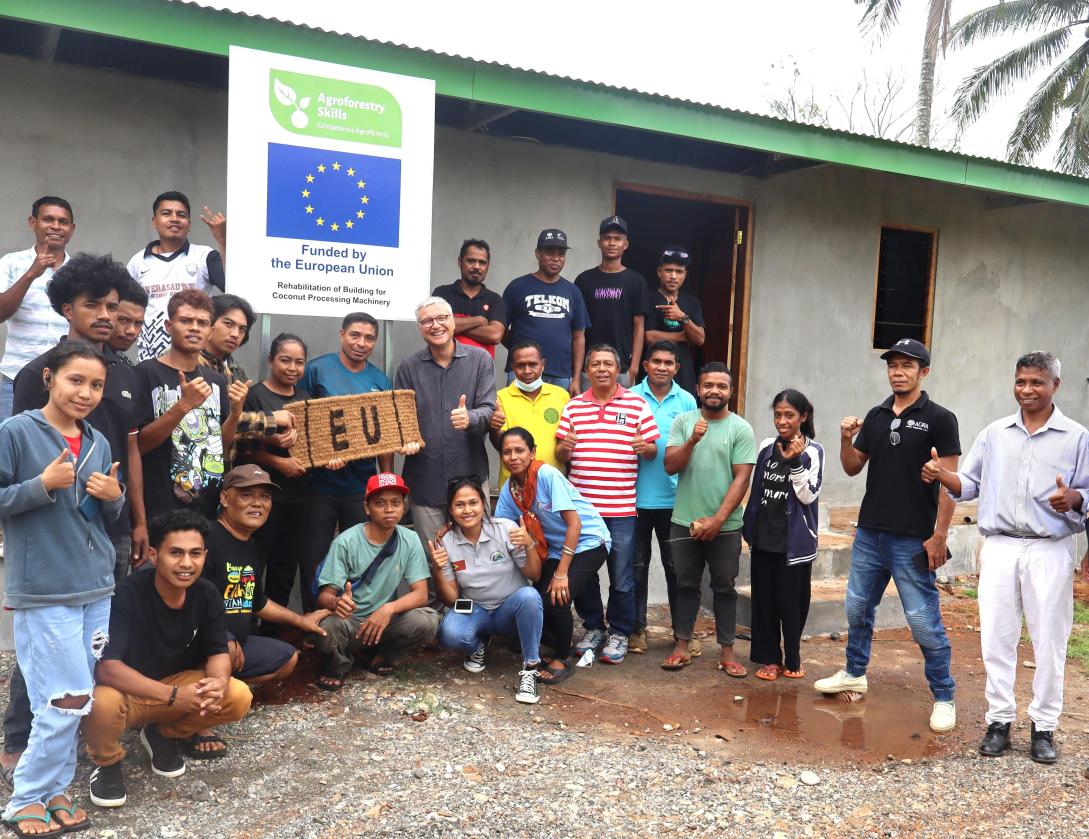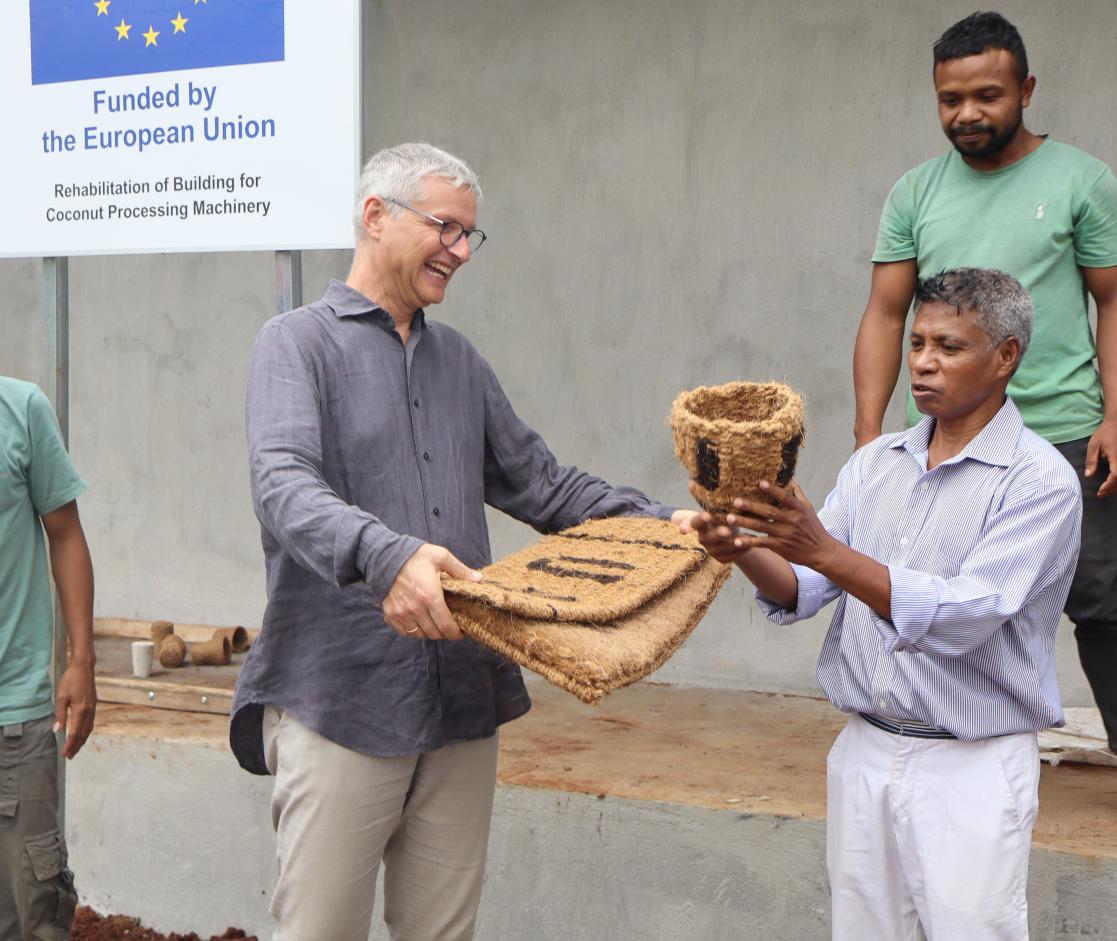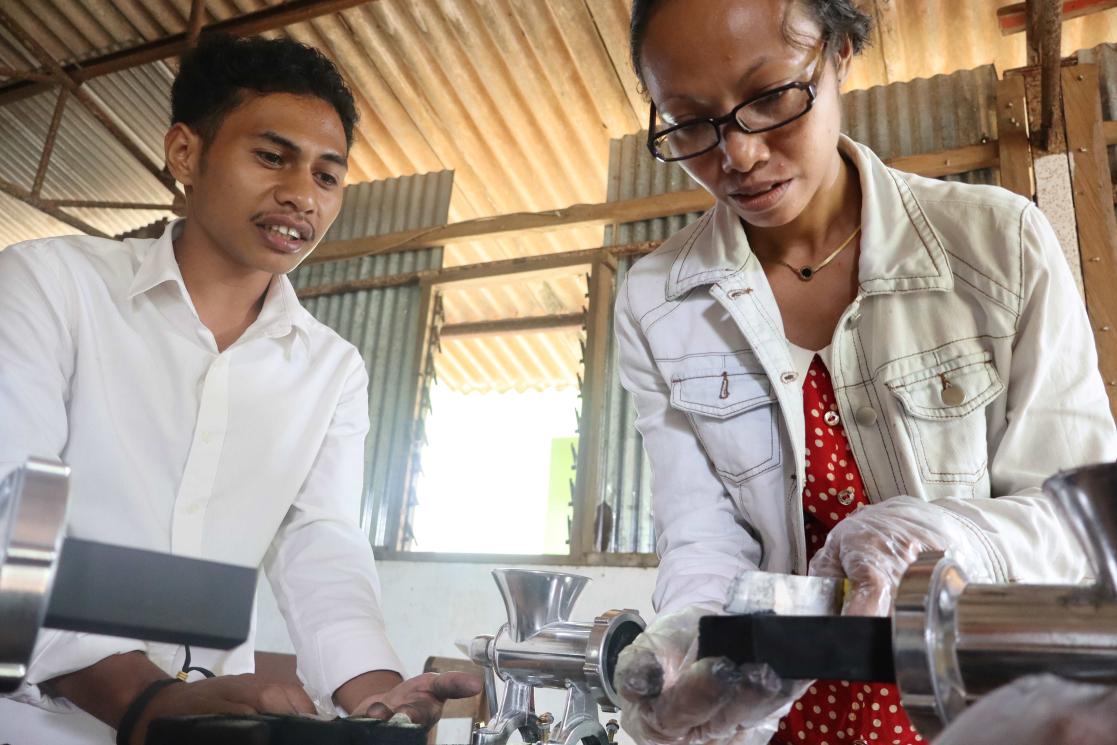24 Young Artisans Finished Training on Coconut Fiber Products and Coconut Charcoal/Briquettes

The Training of Trainers programme engaged 24 participants, including 6 women, from training institutions, cooperative groups, NGOs, and the private sector. Through intensive days of practical learning, the training created new opportunities for income generation and promoted green resource utilization in agroforestry products by processing what is usually considered coconut waste.
The coconut fiber derived from coconut husks, can be transformed into a variety of valuable products, including ropes, mats, doormats, pots, brushes, sacks, mattress stuffing, coco peat, insulation, webbing for soil stabilization, etc. However, in Timor-Leste, the processing of coconut fiber remains very limited. Large amounts of coconut waste are often dumped and left unused, despite its significant potential. This training aimed to equip participants with the necessary skills and knowledge to utilize coconut waste effectively, helping to improve livelihoods, create employment opportunities, and boost incomes across Timor-Leste. Similarly with coconut shell, that usually discarded, could be processed into charcoal and briquette for various purposes, such as barbeque charcoal, shisha charcoal, water filter, etc.
The 10-day training, facilitated by Ichsan Mubaedi from Oesaka company (http://www.oesaka.com) in Indonesia and Donie Cannavaro from Glowing Charcoal (http://www.glowingcharcoal.com), covered essential skills, including manual and machine processing of coconut waste products into valuable products. Although participants faced some challenges, such as being new to the processes of coconut fiber, their determination remained high. Lead trainer Ichsan encouraged participants in the training location at the CDC-Baucau, emphasizing the potential of coconut fiber as a valuable resource. “Do not lose hope. Today, coconut fiber may seem to have no value, but one day, with effort and innovation, it can grow into an incredible business.” Ichsan encouraged.
Carlos da Costa, a participant from the Escola Tecnica Agricola (ETA) Don Bosco Fuiluro, expressed his excitement about the skills gained during the training, “This training has brought many positive benefits. We learned how to process coconut shells and fibers into valuable products such as ropes, mats, and pots. In our community, we often throw away coconut shells without realizing their potential. Now, these new skills can help improve household economies, particularly for farmers and young growers in Lautem municipality.” Carlos further emphasized that following this training, he is eager to share the skills with coconut farmers, young people and the community in Lautem, empowering them to generate new economic opportunities and improve their livelihoods.
Meanwhile Joanico Belo, a participant from CDC-Baucau, added the importance of hands-on practice, “This training was excellent because we focused on practical sessions. We processed dry coconut husk, crafted mats, and pots repeatedly until we mastered the techniques. After receiving detailed instruction in the classroom, we dedicated a significant amount of time to hands-on practice, allowing us to apply what we learned in a practical setting and further enhance our understanding and skills.” Joanico further stated, “With initiatives like this, coconut shells and fibers that we often overlook can create new innovations and products with great economic value for our communities.”
The coconut fiber products and coconut charcoal/briquettes training not only equipped participants with practical skills but also inspired them to view natural resources as tools for innovation and growth. By sharing this knowledge with farmers, students, and young people, the training paves the way for creating sustainable livelihoods and boosting local economies in the country.

ILO_TL

ILO_TL





